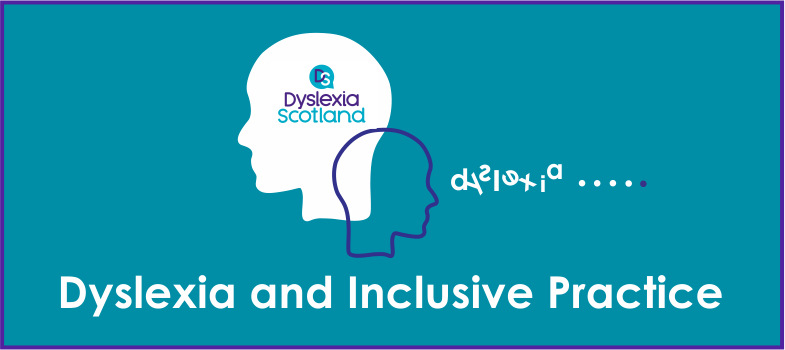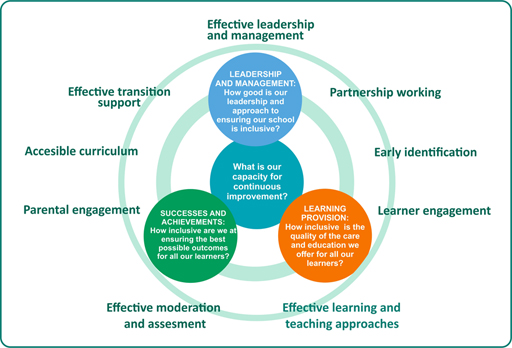3.2. Support through inclusive practice
Module 1 and 2 recap – Summary of dyslexia friendly schools and inclusive schools.
Dyslexia friendly practice is an important element of inclusive practice including approaches to learning and teaching which are child centred and support inclusive practice for all learners. A number of contributory factors support the development, recognition and implementation of inclusive practice within Scottish education with the aim of improving the educational experiences and outcomes of learners who are dyslexic.
This module has been developed to support you as you consider and contribute to improvements in your school communities which enable all stakeholders to become inclusive in their attitudes and practice. This will in turn improve the support and experience of learners with dyslexia and their families
Activity 11 Reflective Log task
Look back at your Reflective Logs from modules 1 and 2 and consider and evaluate your comments as you progress to this section. In your Reflective Log, critically examine, analyse and evaluate what impact learning about inclusive school communities has had on your thinking, learning and practice, and on learners and their learning. Include quotes and extracts of analysed evidence to support this.
3.1. Support through Curriculum for Excellence

